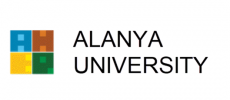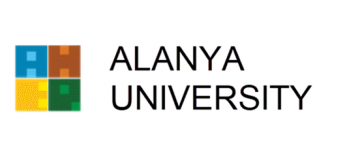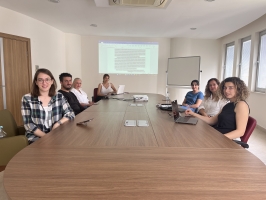We joyfully celebrated the graduation of our non-thesis Social Media and Digital Communication Master’s Program students! Additionally, we are proud to announce that the top graduate from our Gr...
Course Contents
|
ILE 501 Research in Social Sciences (3+0) 7,5 ECTS In this course, the definition of science is provided, and the fundamental functions, characteristics, and sources of science are discussed. In addition, the basic assumptions underlying the scientific method, the stages of the scientific method, and research types are emphasized. |
|
ILE 503 Internet Journalism (3+0) 7,5 ECTS In this course, students will learn about the concept of technology, different approaches to technology, new communication technologies and the internet, the internet and democracy, new communication technologies and journalism, the historical development of internet journalism, a comparison of traditional journalism and internet journalism, the key features of internet journalism, web 2.0 in journalism, the role of social media in journalism, the historical development of blogs, examples of blogs, and information about blog writing. |
|
ILE 505 Network Society (3+0) 7,5 ECTS This course covers the definition of concepts such as big data, network analysis, network theory, and data analytics. Students will be introduced to the concepts of data and data types, data storage, access and manipulation, and data analytics. |
|
ILE 507 Communication Ecology and Digital Environment (3+0) 7,5 ECTS This course provides a general overview of the role of social communication, which continues to develop by adapting to current and emerging digital technologies. In addition, students will have the opportunity to learn about the communication ecology within social order, how information technology and communication formats work in an effective environment, and how they are intertwined with each other within the scope of the course. |
|
ILE 502 Social Media Research (3+0) 7,5 ECTS This course will discuss how research can be organized and managed through social media, one of the most important media environments for institutions, within the context of discourse and content analysis. Students will learn about the processes that can be followed in online environments, and how to conduct research effectively in social media. |
|
ILE 504 Social Media Content Design (3+0) 7,5 ECTS The content of this course revolves around creating digital content and applications for social media. Within the course, emphasis is placed on the basic rules and design approaches that should be considered during content production, as well as the outcomes and effects of production, and topics such as media and marketing. |
|
ILE 506 Social Media Marketing (3+0) 7,5 ECTS The aim of this course is to enable students to gain knowledge about digital marketing in the globalizing market. Various topics such as digital platforms, e-business management, digital marketing dynamics, and trends are examined within the scope of this course. The course aims to provide students with the opportunity to examine trends that can shape the future of marketing on social networks. |
|
ILE 508 Reputation Management on Digital Platforms (3+0) 7,5 ECTS Management of corporate reputation has a significant impact on the process through the use of media. In this context, the course will discuss how corporate reputation can be managed through social media and the processes to be followed in online reputation management. The course will primarily focus on corporate reputation management and related concepts. In this scope, online reputation management in online environments, social media platforms and digital reputation management, factors affecting online reputation, evaluation of online reputation, the role of stories in online corporate reputation, corporate social responsibility in online reputation, crisis management in online reputation processes will be examined with current examples. |
ELECTIVE COURSE CONTENTS
|
ILE 509 Digital Media and Critical Theories (3+0) 7,5 ECTS In this course, students will learn critical theories and examine the development of digital media within the framework of critical theories. The aim of this course is to enable students to make observations about digital culture produced and circulated in the social media environment, and to synthesize these observations with knowledge of critical theories in order to understand digital media. |
|
ILE 511 Social Media Advertising (3+0) 7,5 ECTS The goal of this course is for students to interpret innovative developments in the media, agency, and advertising sectors, create digital marketing plans that brands need, and produce more effective marketing campaigns by learning about various types of digital advertising. The course examines strategies developed within advertising and promotional campaigns on social media platforms and focuses on designing campaigns that are suitable for the target audience. |
|
ILE 513 Data and Society (3+0) 7,5 ECTS This module aims to lay the theoretical foundations for researching and understanding the intersection of digital data and society. The main focus of this module is on digital data applications and how they are shaped and influenced by socio-cultural, political, and subjective factors. Students will be introduced to key concepts and theoretical frameworks from an interdisciplinary perspective and engage with them through seminars and independent work. Assessment consists of a creative data project as well as a written essay. |
|
ILE 515 Customer Relations Management (3+0) 7,5 ECTS This course aims to examine the effective use of social media in terms of marketing communication and customer relationship management, in the digital age where marketing communication management has completely shifted to a customer-focused and interactive dimension with web 2.0 technologies. In this course, the development of customer relationship management with web technologies will be examined in the context of communication perspective, and the fundamental dynamics of social customer relationship management will be addressed along with the examination of current applications to provide comprehensive knowledge on the subject. |
|
ILE 510 Digital Culture and Everyday Life (3+0) 7,5 ECTS Dijital ağlara bağlı platformlar ve cihazlar sürekli etkileşimsellik özelliği ile toplumlar ve kültürler üzerinde gün geçtikçe daha büyük etkilere sahip olmaktadır. Bu etkiler gündelik hayat pratikleriyle kaynaştıkça görünmez hale gelmektedir. Bu ders kapsamında ise öğrencilerin keni bireysel internet kullanımlarının diğer bireylerden nasıl farklı olabileceğini ve bu farklılığın dijital kültür için ne anlam ifade edeceği keşfetmesi beklenmektedir. Yanı sıra, farklı konular ve bakış açılarından teknoloji ve toplumun etkileşimini inceleyecek ve dijital kültürü kavramsal olarak analiz edeceklerdir. |
|
ILE 512 Digital Economy (3+0) 7,5 ECTS In this course, the economic impacts of digital platforms and networks at the local, national, and international levels are examined. Within this scope, learners are expected to develop a perspective with a digital innovation approach by being presented with various examples on how new technologies can be utilized for businesses and brands, and how competitive multi-channel strategies can be adopted. |
|
ILE 514 Internet, Collaboration and Innovation (3+0) 7,5 ECTS This course focuses on internet-based collaboration and innovation. In this context, the course covers how the internet has reshaped our ways of connecting and collaborating with others, the environments for collaboration, ways to use and enhance internet collaboration, participation and management in collaborative processes. |
|
ILE 516 Online Games and Gamification (3+0) 7,5 ECTS This course focuses on adapting digital game design techniques to business and societal problems. Within this scope, the aim is to provide learners with information on gamification mechanisms, their potentials, and effective usage methods. In addition, conducting gamification analyses in various fields, performing relevant case studies, examining gamification strategies of various actors, and discussing problems arising from gamification are aimed. |



